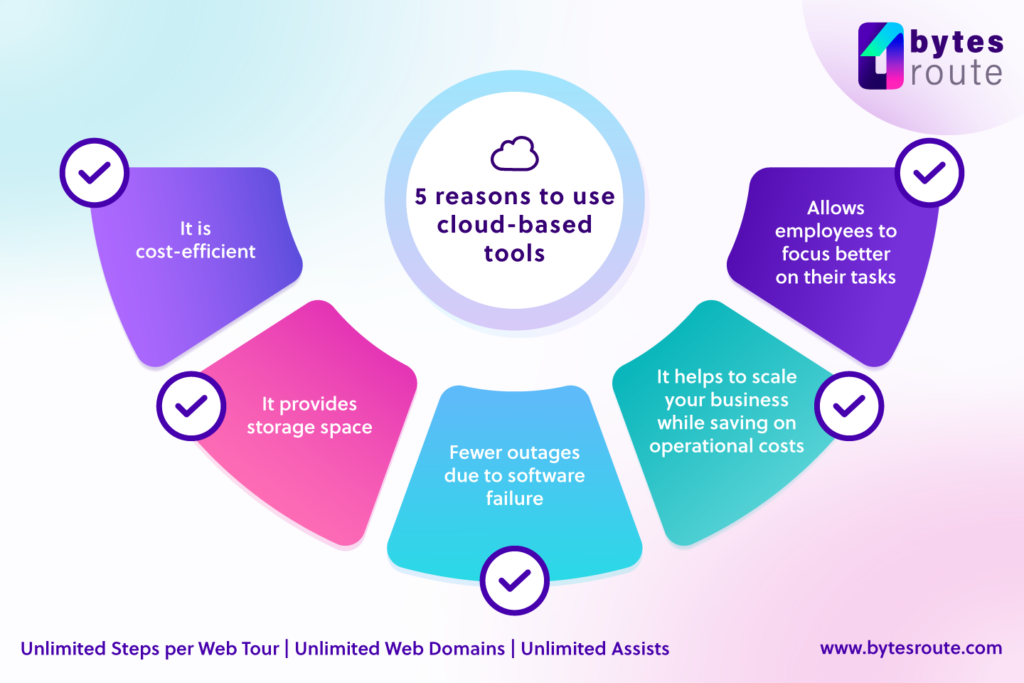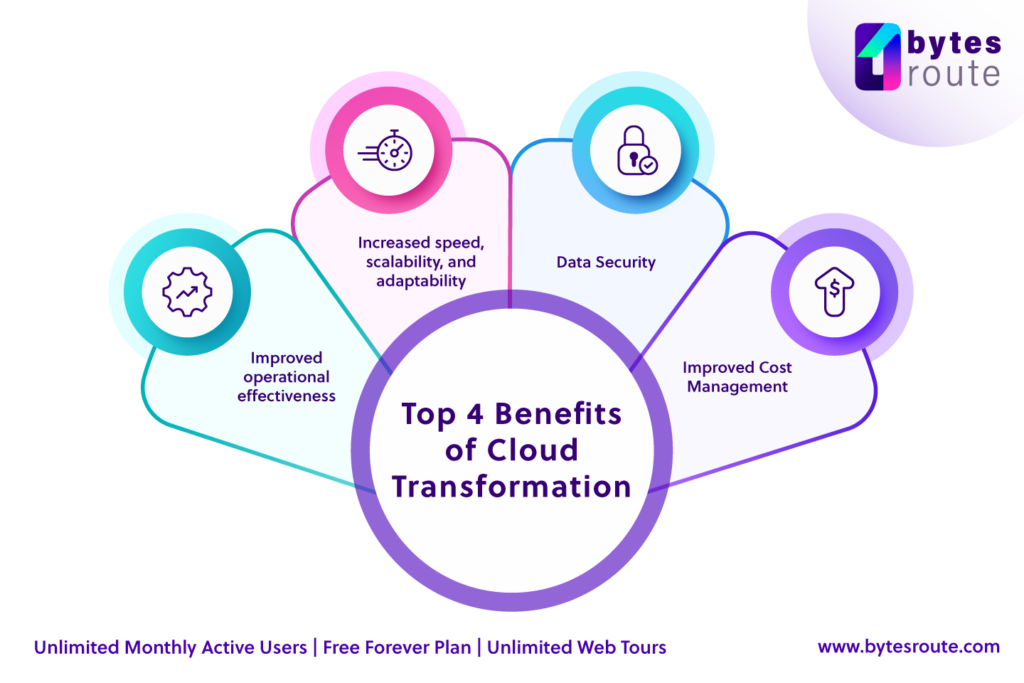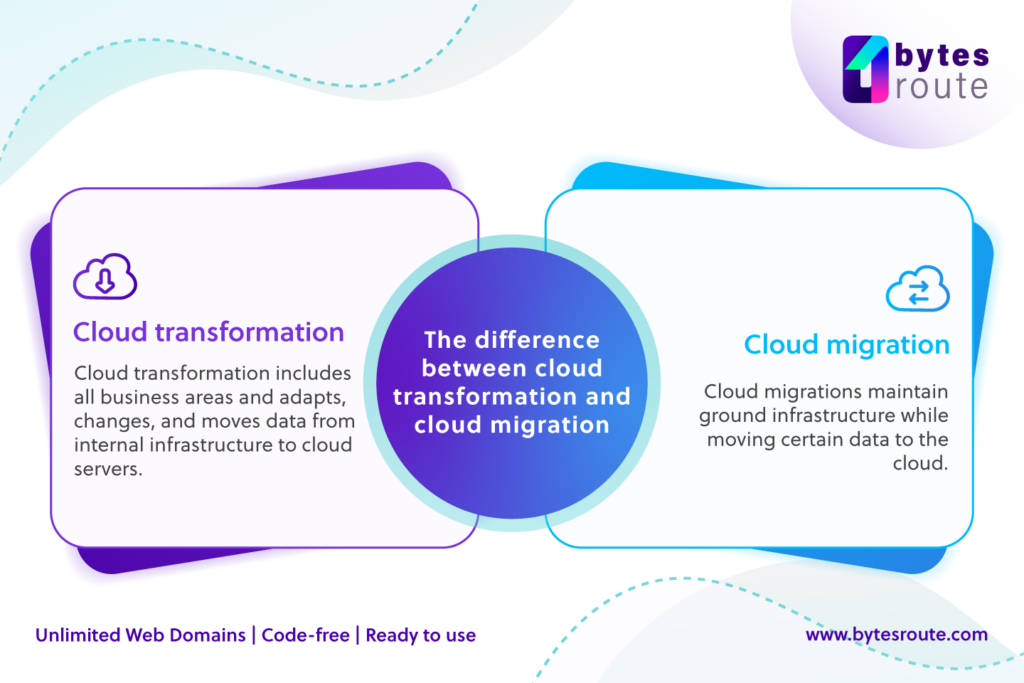What is cloud transformation?
Cloud transformation is the process of moving a company’s data, apps, and software to the cloud.
Cloud-based transformations improve operations, services and procedures by making digitalization faster and more flexible.
Cloud-based technology aims to empower organizations by giving them scalable and efficient data analytics solutions for improving customer interaction, organic growth, and structural IT adaptability to boost growth and save money.
About Cloud business transformation
Cloud business transformation is the process of moving labor, including data, apps, and software programs.
Cloud is a key part of business and it can help transform the way processes are handled.
Here are 5 reasons why introducing your business to cloud-based tools could help transform it:

What are the Benefits of Cloud Transformation?
Cloud transformations yield many benefits to businesses and organizations. From operations to regular daily processes. Here are some of the main benefits of taking your business through Cloud Transformation:
- Improved operational effectiveness – The capability of retrieving crucial information from any location at any time is becoming the norm in an increasingly virtual environment.
- Increased speed, scalability, and adaptability – Cloud transformation enables increased process speed, better adaptability, and scalability. Processes may be run faster due to cloud transformation, which also improves adaptability and scalability.
- Data Security – Data security is the technological technique of preventing unwanted access to or destruction of any computer system’s information.
- Improved Cost Management – The practice of organizing and regulating a company’s operating expenses is known as cost management. To budget, anticipate, and monitor costs more accurately, it involves gathering, evaluating, and reporting cost information.

What are some Cloud Transformation Strategies?
All digital innovations must be integrated into larger digital innovation cycles as part of the cloud technology transformation strategy.
Data migration
Data migration is the process of moving data to a new location, file format, environment, storage system, database, data center, or application.
Analytics
Cloud analytics is the practice of applying analytic algorithms to data stored in a private or public cloud and then measuring the outcome.
Cloud Management
Cloud Management refers to the systematic control, administration, and maintenance of public, private, or more frequently hybrid (public and private) multi-cloud computing infrastructure, services, and resources. It helps IT teams control scalable and dynamic cloud computing systems.
Cloud Security
Cloud security, often referred to as cloud computing security, is a group of security controls intended to safeguard data, programs, and infrastructure that are hosted in the cloud.
Benchmarking Tools
Cloud transformation strategies use benchmarking tools to compare performance to that of rivals’ products and identify problem areas with the aim of advancing digitalization.
Benchmarking is a tactic used to assess how well a company’s operations and goods compare to those of competitors both inside and outside the sector.
What are the differences between Cloud transformation and Cloud migration?

Cloud transformation includes all business areas and adapts, changes, and moves data from internal infrastructure to cloud servers close by. This is often a lengthy process, including software and application migrations to the cloud.
Meanwhile, cloud migrations maintain ground infrastructure while moving certain data to the cloud.
Typically, cloud data migration is done using services like:
- Amazon Web Services (AWS) provides cloud computing services.
- Google Cloud is a secure way to store important files and back up your business.
- Azure is a complete cloud platform that can host your existing applications and simplify the development of new applications.
- Scoro is a comprehensive project and business management solution that empowers professional and creative services to control your entire workflow.
- Wrike is award-winning project management software used by over 20,000 companies.